Why Is My Dog Breathing Fast? 8 Typical Reasons (Vet Answer)

Updated on
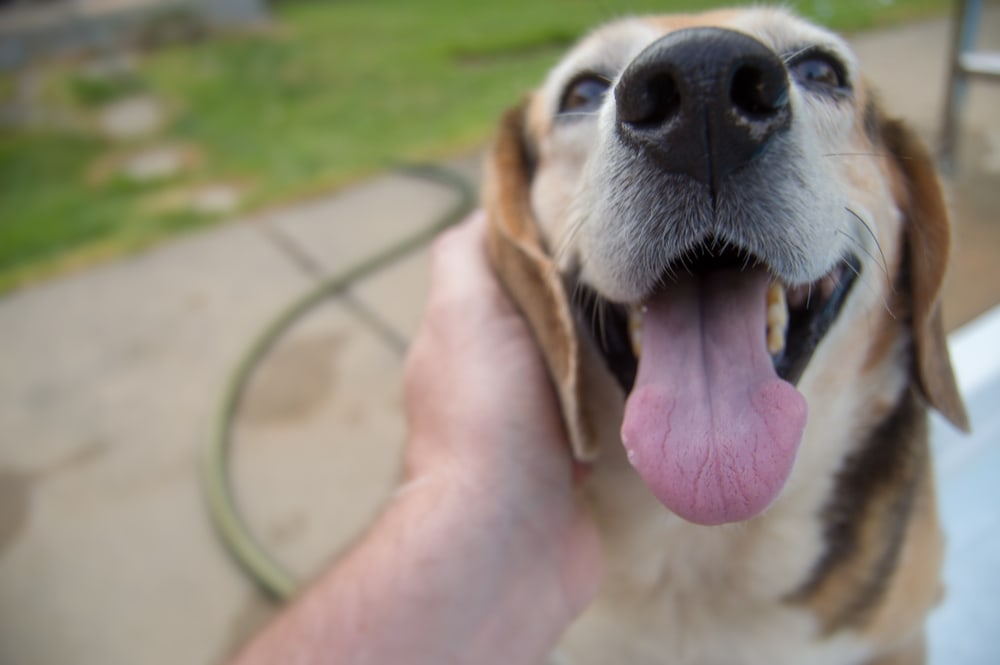
Breathing too fast can be a result of a disease, such as lung cancer, or it can be a natural compensatory mechanism that happens normally, such as panting after running.
Dogs breathe faster to get more oxygen into their body and carbon dioxide out. If the body needs more oxygen because of exercising, for example, they will breathe faster to pull more air into their lungs at a higher rate.
On the other hand, if the respiratory system is compromised and not working as well as it should, dogs can also breathe faster to pull more into their lungs, exchanging more air.
In this article, we will examine the things that can cause a dog to breathe fast so you know what to look for.
The 8 Reasons Why Your Dog is Breathing Fast
1. Heat Stress
The biggest difference between the human and dog respiratory systems is that they use it to breathe and to cool off. Humans just use their respiratory system to breathe—for the most part.
So, when your dog is breathing fast, they may need to get enough oxygen, or they may just be too hot and panting. Panting helps cool off the body by forcing air in and out quickly to force evaporation, which disperses heat away from the body.
2. Stress or Excitement
However, a panting dog does not always mean an overheated dog. Dogs also pant when they are stressed or when they are very excited. Panting when excited or even stressed is a normal adaptation for their bodies.
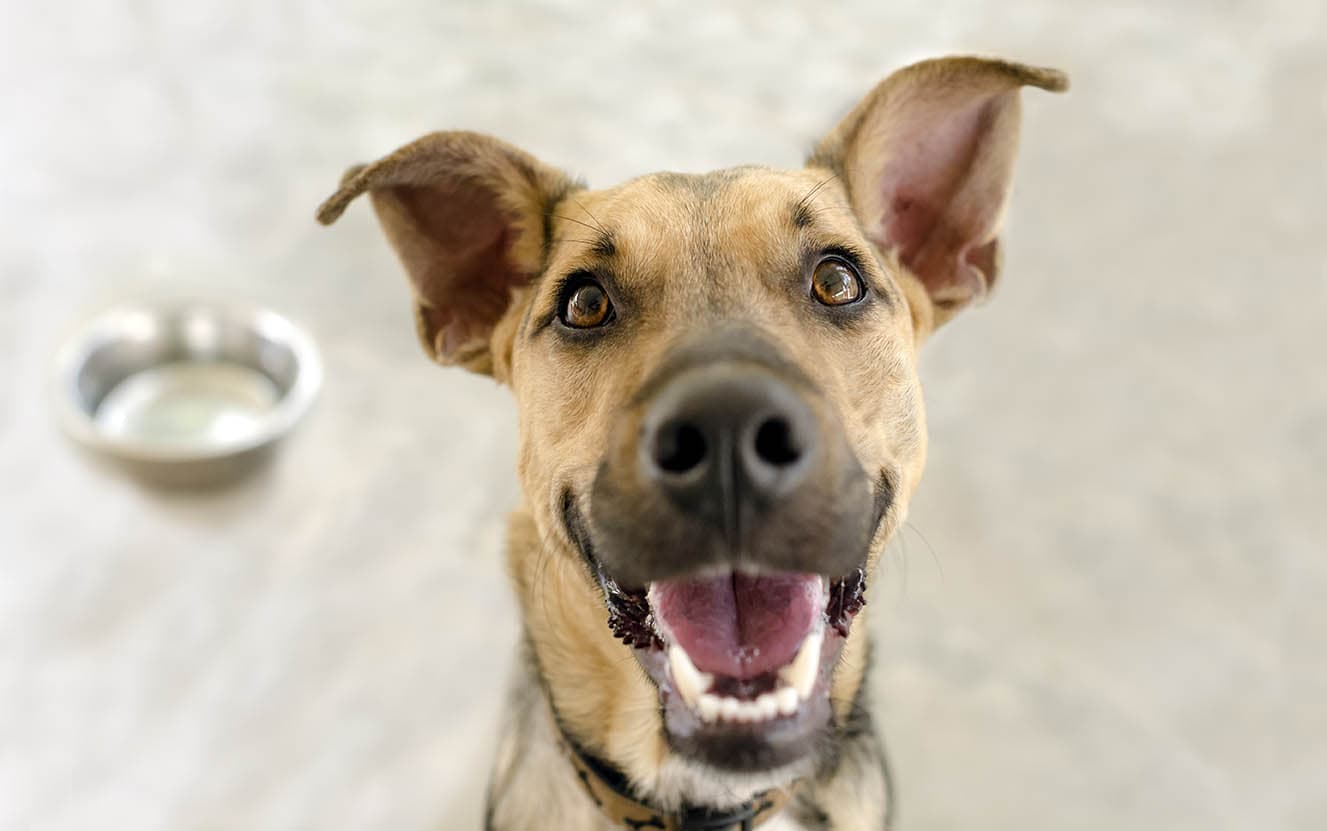
3. Pain
Pain is a type of stress, and sometimes, if a dog is in pain, they can pant. Often it is a severe pain that also causes them to be anxious or a strange pain like nausea. Panting because of pain or stress often looks subtly different from panting because of heat.
4. Exercise
Exercise causes the body to not only heat up but also to consume more oxygen and carbon dioxide. As a result, the dog’s body breathes faster. An exercising dog will breathe faster, and they may continue to breathe faster after they have finished, as they cool off.
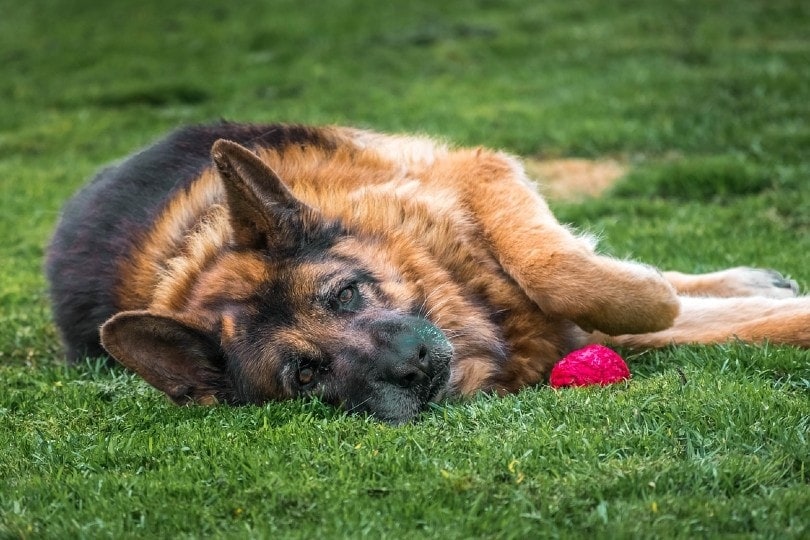
5. Respiratory Disease
Disease in the respiratory tract can cause a dog to breathe faster. This may mean more apparently normal breaths per minute, or it may mean open-mouthed panting at inappropriate/unusual times.
The disease can be in their upper respiratory tract, in their nose, sinuses, and trachea. It can be in their lungs or anywhere along the respiratory tract where air is blocked from free flowing.
6. Cancer
Cancer can be painful; it can cause nausea, or it can spread to the lungs and impair the functionality of the lungs, all of which can make a dog breathe faster.
The pain and side effects of cancer can cause a dog to breathe faster. However, one of the first places that cancer tends to spread in dogs is to the lungs.
When it does spread there, it can create masses in the lungs which block the normal flow of air, decreasing the amount of air that can be breathed in and out efficiently.
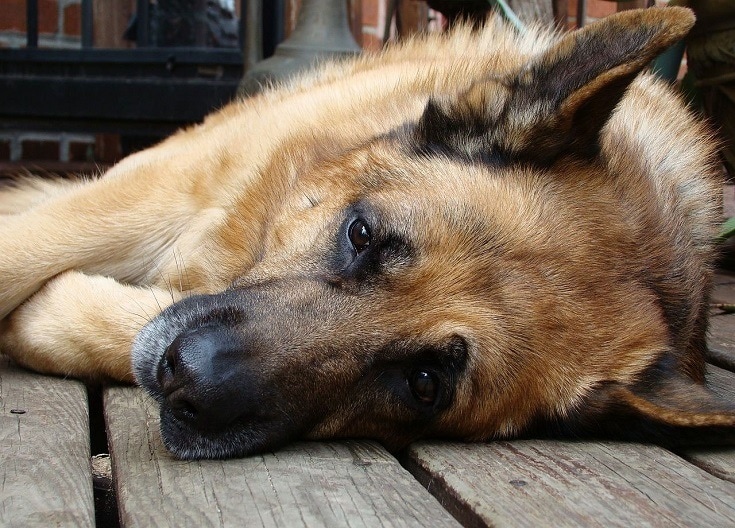
7. Cardiac Disease
One of the less intuitive problems that can result from heart disease is breathing too fast. While it might not be the first thing someone may think of, anyone who has had a dog with heart disease will know that how fast their dog breathes is a sign of how severe their heart failure is.
When the heart fails to pump blood around effectively, the blood slows down and almost pools in the lungs. As a result, fluid leaks from the veins and arteries into the lungs. The wet lungs cannot exchange oxygen and carbon dioxide as efficiently, and so to compensate, the dog breathes faster.
8. Brachycephalic Obstructive Airway Syndrome
In this syndrome, breeding dogs with short, pushed-in noses compromises the upper respiratory tract, making it very difficult for them to breathe. Not only is the nose and trachea too small, but the smushed-up mouth also gets in the way in the back of the throat, causing further airway obstruction.
Dogs with this syndrome often breathe faster than normal dogs. They often have to constantly breathe with their mouths open and panting. They make a lot of noise as they breathe faster. And if the condition is bad enough, it can cause inflammation, making breathing even worse.
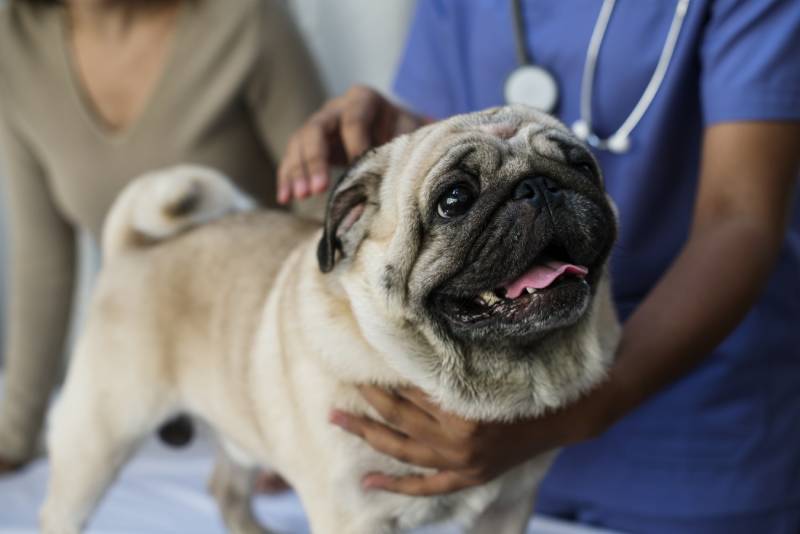
 Conclusion
Conclusion
Dogs breathe fast for several reasons, which are excellent indicators of a healthy dog. But breathing too fast can also be a sign of internal health problems.
Watching your dog and learning what is normal for them is the best way to prepare and learn which one is which. Knowing what your dog’s normal breath and panting look like makes it easier to identify it when it goes wrong.
Featured Image Credit to Neal Bryant, Shutterstock












